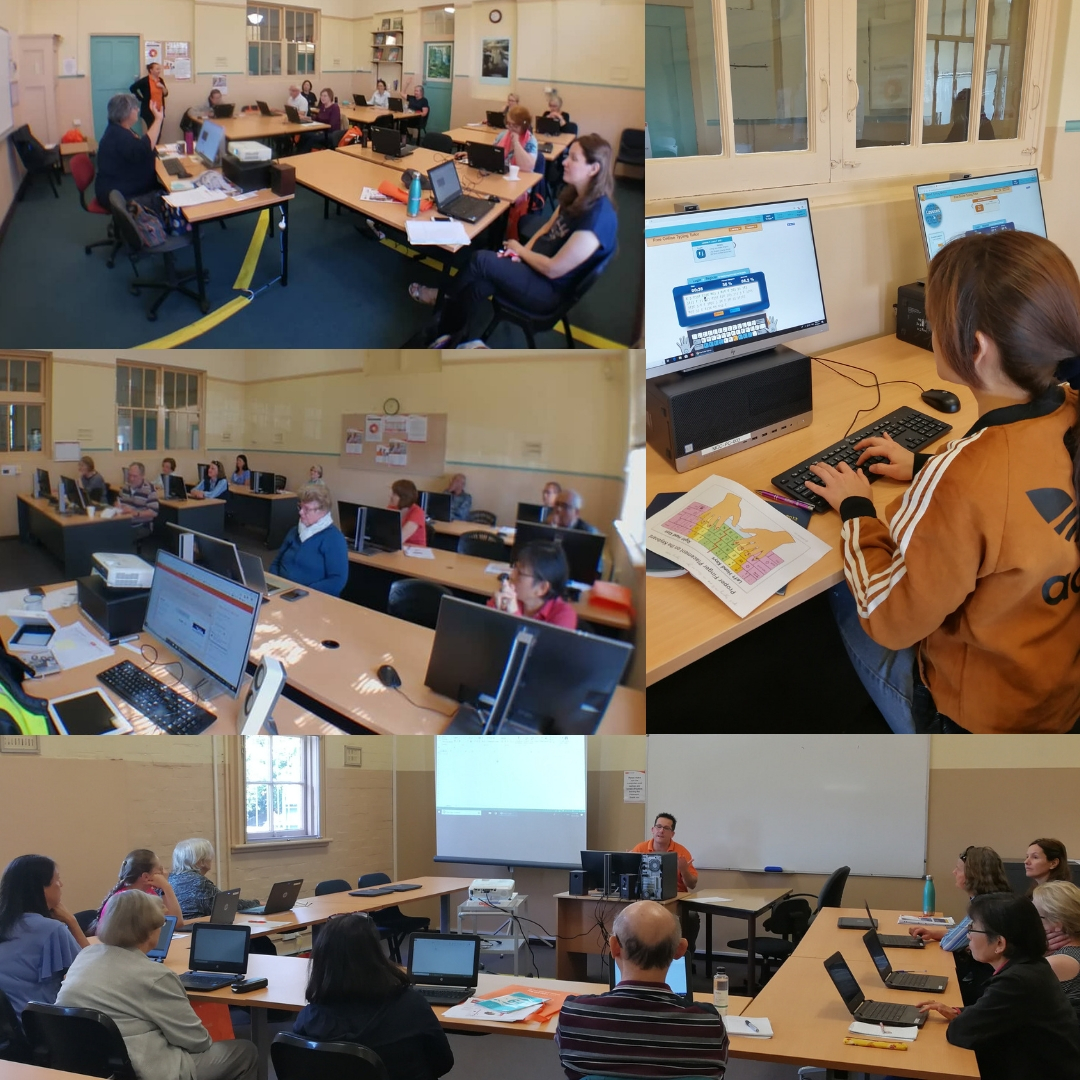Photos: Get Online Week Event, October at the Carlingford Campus where attendees enjoyed free computer classes.
At Macquarie Community College, we work every day towards increasing social inclusion. One area of a social divide in our communities is the so-called “Digital Divide” where we see deep gaps in access, affordability and skills in using computers, phones and tablets.
As more and more government and business services, education and information moves to being accessible online, digital skills and access to the internet are increasingly regarded as essential. These days there are fabulous online tools to help anyone manage their health and wellbeing, take part in education, access government services, manage and track their finances, and connect with friends and family, or explore treasure troves of information.
Playing our Part Locally
We think everyone should be able to access digital technologies and online information and services. We know it takes skills, confidence, some tools and a bit of time to really become tech-savvy. Over the past 3-5 years the College has been growing our range of subsidised courses and programs so that we can help to increase the digital literacy of our students, many of whom face barriers and disadvantages to participation.
We recently showcased some of these digital literacy courses at our Open Day at Chatswood (view Open Day video) and during our Get Online Week Event (view Event video) at the Carlingford campus. Attendees experienced free classes in a variety of subjects including Keyboard Typing, Microsoft Office, Computer Basics, How to Use Digital Devices, How To Stream Music, Cyber Safety, Social Media and more.
Contributing to National and Global Outcomes
We are conscious that increasing digital literacy overall and decreasing the gap between the between the “haves and have-nots” of the digital divide can also work towards even bigger achievements nationwide and globally – for example the United Nations Sustainable Development Goals around environmental, social and economic transformations.
There is a new research report out on The Australian Digital Inclusion Index (ADII).
The report provides a comprehensive picture of Australia’s online participation to date with comparative data over 5 years (2014- 2019) across three dimensions of digital inclusion: Access, Affordability, and Digital Ability according to people’s social and economic circumstances, as well as across geographic locations.
The report was first published in 2016 and the latest edition shows the good news is that some things are improving. However the not so good news is that there is still a lot of work to do.
Key findings as summarised by the authors* of the report:
- Digital inclusion is improving in Australia
- The gaps between digitally included and excluded Australians are substantial and widening for some groups
- Rural Australia leads the way in NBN take-up and access improvements
- Building digital confidence is important for enhancing digital inclusion
- Although value for money has improved, affordability remains a key challenge
- Mobile-only users are less digitally included
- The age gap is substantial but narrowed in 2019
- The digital inclusion gap between Australians with disability and other Australians is substantial but narrowed in 2019
- Indigenous digital inclusion is low, but improving
- Geography plays a critical role
- Some Australians are particularly digitally excluded
- Collaboration across all levels of government is needed
*Report is brought together by Telstra, RMIT, centre for social impact, Roy Morgan
Our commitment to increasing digital literacy and decreasing the digital divide is a demonstration of our Purpose – to create and provide affordable and inclusive learning opportunities that meet the needs of individuals, organisations and communities.
You can join with us in narrowing the digital divide! We are offering free Digital Mentor courses to teach you to engage and assist people with little or no digital competence.
Alternatively, have a look at the new Term 4 Catalogue and learn something new today!


